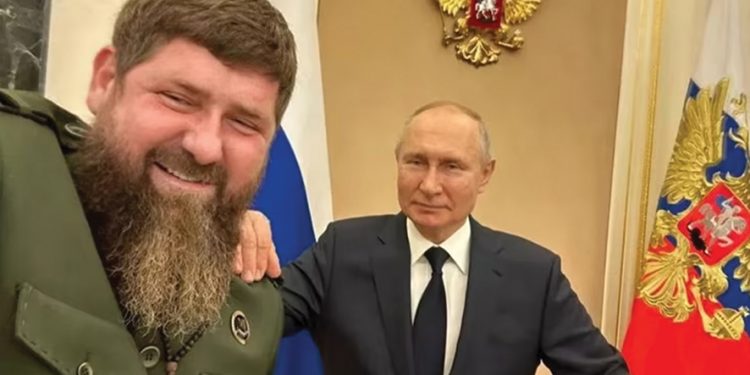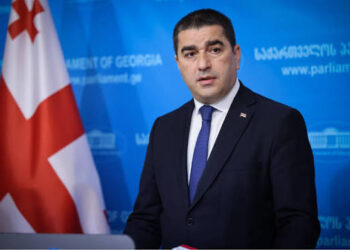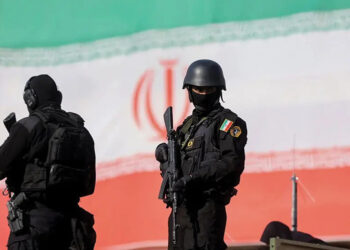In Putin’s Russia, flying too close to the sun and wearing your heart on your sleeve invariably lands you in jail or, worse still, gets you killed. Paradoxically, the same brash demeanor is of the essence to rise through the Kremlin’s ranks and cement one’s place among its ruling elite. Disgraced warlord Yevgeniy Prigozhin’s rags-to-riches-to-ashes story is a pertinent example of an innate risk-taker who decided to push the envelope and let the chips fall where they may at the tail end of his colorful career. Cognisant of the fine line between constructive criticism and outright character assassination, Prigozhin repeatedly vented his frustration at high-ranking military officials via the social-media platform Telegram until it became evident that his no-holds-barred, vitriolic rants were not being taken seriously by the Ministry of Defense. In many ways, their inertia thrust him into uncharted territory which ultimately ended up sealing his fate.
That said, the Wagner boss painted a target on his back and fell out of favor with the State Duma well before the armed insurrection in June. Described as a “talented businessman” in Putin’s eulogy, it is somewhat surprising that Prigozhin had no concept of basic office politics and was convinced he could get away with making enemies of the conventional armed forces’ most senior and decorated commanders. All the more unfathomable was that he did not see his doomsday coming even though the Russian President is on record claiming he does not forgive betrayal under any circumstances. While he may be a serial liar who routinely enters into unscrupulous agreements not worth the paper they are written on, Putin has proven time and time again how much loyalty matters to him. Eliminating his golden goose with no obvious heir apparent or succession planning vis-à-vis Wagner speaks volumes of the ex-KGB agent’s austere moral code that is not to be toyed with.
To some extent, Prigozhin’s value proposition, both on and off the battlefield, led him to carry on with business as usual and assume he was in the clear. From rubbing shoulders and cutting side deals with prominent dignitaries at the Russia-Africa Summit in St. Petersburg a month ago, to filming himself donning fatigues in the “50-degree” heat and barren terrain of Mali shortly before his plane crash, the putschist’s followers were deluded into believing that he had been given a new lease of life by the very tyrant he left red-faced. Meanwhile, revealing that the “special military operation” had gone sideways was arguably as cardinal a sin as the failed coup itself. Having admitted that his mercenary unit was running low on artillery and had to retreat from key strategic positions in Eastern Ukraine as a result, the former convict inadvertently peddled a narrative which ran counter to the triumphant discourse Kremlin-affiliated media outlets were force-feeding their audience.
Surrounding himself with ultra-nationalist, warmongering loudmouths cut from the same cloth is a deliberate ploy by Vladimir Putin to show the Russian populace what they are in for if he ever relinquishes power. Even Dmitry Medvedev, who was long considered a level-headed statesman and the darling of the West during his four-year term as commander-in-chief, has now morphed into the high priest of anti-NATO posturing. Prigozhin, for his part, had always been a loose cannon while in the public eye, and made the fatal error of using prison yard tactics to try and overthrow the current regime. The billionaire chef’s rough upbringing on the crime-ridden fringes of then Leningrad was embodied in his abrasive persona and his receptivity to undertake all kinds of dirty work and odds jobs for the Kremlin. However big his boots are to fill, as well as those of his late right-hand man Dmitry Utkin, one thing remains certain: nobody is indispensable in Putin’s eyes.
State-sponsored propagandists spun the downing of Prigozhin’s Embraer jet as a scheme hatched by Ukraine’s security apparatus (SBU) on its independence day to decapitate Wagner and starve Russia’s war chest of the money they were making hand-over-fist in Africa. Much like the 2020 assassination of Qasem Soleimani, Iran’s second most powerful figure at the time, Prigozhin is being depicted as a martyr who perished in the thick of advancing the motherland’s “common good” to drum up domestic support and incite further animosity towards the collective West. The sheer number of makeshift memorials that have mushroomed across Moscow and St. Petersburg this past week not only suggests that he was a folk hero to many – just as Soleimani was to even the most apolitical Iranian citizens – but that the Kremlin appears to be preying on his mourners’ credulity with its own twisted version of events.
With Prigozhin now out of the equation, the modern-day tsar is in dire need of a trusted confidante who appreciates how high the stakes are for becoming too adventurous or megalomaniac. Chechen leader Ramzan Kadyrov got the memo at a very young age, having seen his hometown Grozny bombed to smithereens as part of Russia’s “war on terror”. Ever since taking the reins in 2007, there has been an unspoken quid pro quo between Kadyrov and Putin. In exchange for flushing out sympathisers of Salafist militia groups like ISIS and Al Qaeda, as well as separatist guerrilla movements, the 46-year-old strongman has carte blanche to run Chechnya like a family-owned conglomerate, and receives munificent funding from state coffers for its “post-war beautification”. Although still a cesspit of misery where flagrant human rights abuses including domestic violence, enforced disappearances and contract killings are rife, the threat of radical Islam permeating to other parts of the country from what was once a breeding ground for jihadi fighters is remarkably low.
Besides Kadyrov being a known quantity, bringing him to the forefront is also conducive to gaining political mileage and currying favor with Moscow’s newfound Middle Eastern allies. The recent expansion of BRICS, which will soon include six new members, of whom four are Muslim-majority states, goes to show how bullish the Russians are on West Asia. In a sense, BRICS+ is nothing more than a manifestation of Putin’s inferiority complex towards the G7, which Russia was famously booted from back in 2014 after occupying Crimea. The Chechen President, who is a familiar face across the Gulf and masquerades as Russia’s de facto diplomatic attaché to the region, will no doubt be looked upon as their meal ticket to keep up cosy ties with sanctions evasion hubs like Dubai and Doha. The Arab World is increasingly being touted as the Kremlin’s next El Dorado amid an inevitable scaling down of Wagner’s underhand commercial ventures in Africa that have fleeced parts of the continent dry and helped fund the ongoing conflict.
Russian lawmakers even ratified a decree to pilot shariah-compliant banking in the predominantly Islamic republics of Tatarstan, Bashkortostan, Dagestan and Chechnya from the start of September. As far as the full-scale invasion is concerned, Kadyrov has been one of its most vociferous apostles, yet his light-infantry “Akhmat” battalion turned out to be all bark and no bite when they were deployed to the frontlines. Notwithstanding, the Chechen head could be entrusted with less heavy-duty missions such as Russia’s unfinished business in nearby Georgia. Medvedev’s recent remarks on the prospect of formally annexing Abkhazia and South Ossetia were just as much tongue-in-cheek as they were off-the-cuff. The Georgian Dream party’s pay-to-play arrangement with Moscow, coupled with President Salome Zurabishvili’s administration being asleep at the wheel as the Russian diaspora proliferates, renders Georgia low-hanging fruit and a potential consolation prize for Putin, given his army’s abject failure in Ukraine. On that note, perhaps Prigozhin was merely his sacrificial lamb to usher in young blood and with it, an era of less grandiose foreign policy manoeuvrings that do not risk blowing up in his face.
By Saahil Menon














